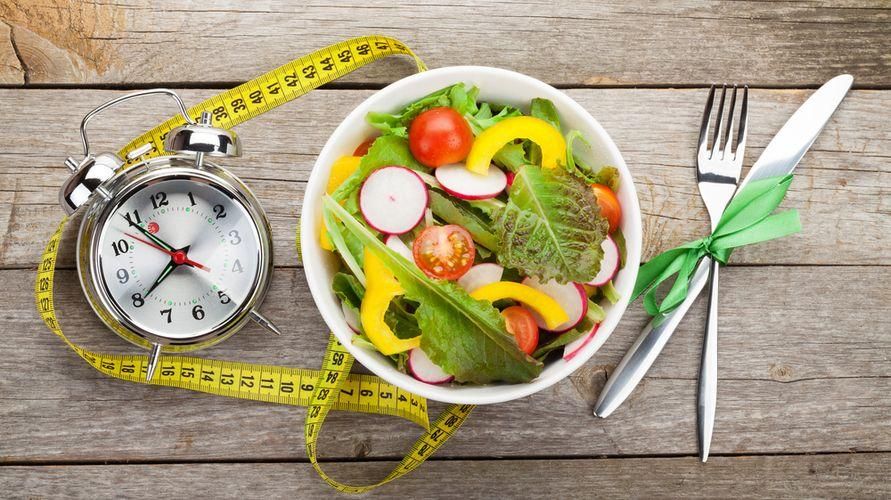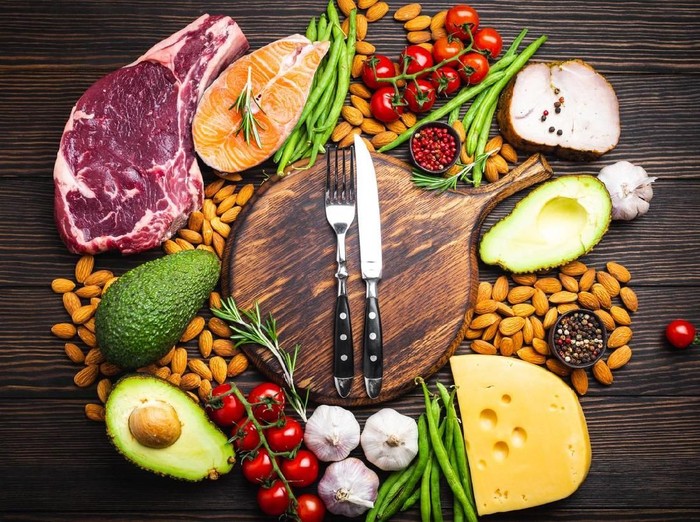The eating schedule was influential for the diet program. Many people think that mealtime does not affect the success or failure of a diet, instead of blaming the types of foods included in the wrong diet program.

According to experts, losing weight is not just reducing the portion of food. You also have to pay attention to the proper eating schedule so that your weight becomes more under control.
The importance of setting an eating schedule for a successful diet
No matter how healthy your food and eating schedule that doesn’t follow your body’s biological clock can mess up your metabolism.
Metabolism is a variety of chemical reactions in body cells that convert food into energy.
One of the effects of disrupted metabolism is an increase in blood sugar. That interferes with the production of the hormone insulin, which is responsible for storing fat in the body.
Instead of being burned into energy, fat in the body accumulates.
The right time to eat can help the diet’s success while protecting you from disease risk.
Dr. Jonathan Johnston researched it at the University of Surrey in the UK in the Journal of Nutritional Science (2018), which divided the participants into two groups.
He asked the first group to have breakfast 90 minutes later than their usual schedule and dinner 90 minutes earlier.
There is no limit on the type of food. After 10 weeks of observation, Dr. Jonathan took blood samples from the participants.
People who change their breakfast and dinner time can lose body fat twice as much as those who eat as usual (group two).
Dr. Johnston also found that the first group ate minor than the second group.
The participants stated that they ate less because their appetite was more controlled. They also don’t snack much at night.
In addition to losing weight, Dr. Johnston added that these changes could prevent obesity and related diseases. The reason the amount of body fat has been reduced from before.
Instructions for the proper eating schedule for the diet program

You’re mistaken if you think a healthy diet only eats once daily. You don’t need to hold back hunger or fast all day when losing weight.
Instead of losing weight, you are more prone to hypertension and other health problems.
So, it would be best to keep eating as usual with the following dieting schedule.
Breakfast at 6 – 09.45 am
A study in the journal Obesity (2015) revealed that eating a high-protein breakfast at 6-9:45 am most effective at preventing fat accumulation.
Breakfast at this time can also prevent the emergence of false hunger throughout the day.
Nutritionist and spokesman for the Academy of Nutrition and Dietetics in the US, Jim White, also agrees.
According to White, eating one hour after waking up is the best time to eat a diet. Don’t wait until 10 am to have breakfast.
Morning snack 2 – 4 hours after breakfast
A healthy snack can be the solution if you are used to eating very early in the morning and can’t wait for lunch.
To ensure your snacks don’t become fat accumulation, ensure you snack 2-4 hours after breakfast.
That’s when snacking on a diet is needed for the digestive system to process your food at breakfast.
That way, when you eat a snack, your body is ready to process the incoming food.
Lunch at 11 – 12 am
Citing the Northwestern Medicine page, the right time to eat a lunch diet is 4-5 hours after breakfast. If you have breakfast at 7 am, you should have lunch at 11 – 12 am.
However, if there are activities that prevent you from eating lunch until 2 pm, prepare a healthy snack to eat between breakfast and lunch.
Snacks that are dense in fiber and protein can keep you full longer.
Snack at noon 2 – 4 hours after lunch
Like a morning snack, snacking in the afternoon or evening can also help keep you from overeating.
The key is to choose a snack time during the proper diet, which is 2-4 hours after lunch.
Also, don’t forget to choose snacks high in fiber and filling. Choose fruit, vegetables, or nuts.
You can add low-fat, soy, and tea or coffee without sugar.
Dinner at 4 – 5 pm
Some people overeat at night because they don’t eat enough during the day.
As breakfast and lunch, dinner time should be regular and not too late.
It would be best if you ate dinner early between 4-5 hours after lunch, i.e., between 4-5 pm. That is indeed difficult if you are not used to it.
To prevent hunger, you can eat a diet snack at night.
[fcp-bmi-calculator]




